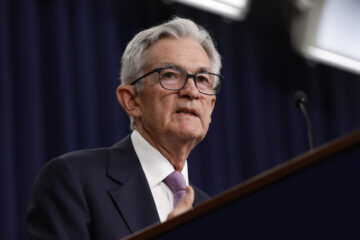The holidays are now firmly behind us, and we’re just starting to get a glimpse at how some of the biggest retailers fared.
It’s a foregone conclusion that the holiday period will be profitable for Walmart (WMT) , so it’s generally a question of how profitable.
💰💸 Don’t miss the move: SIGN UP for TheStreet’s FREE Daily newsletter 💰💸
Consumers are increasingly interested in deal-hunting, and with the price of almost every good and service up on a monthly basis, it’s easy to understand why many of us did our holiday shopping at a budget friendly stalwart.
Analysts and investors are likely to be more cautious about other cases, however. Bankruptcy filings are already underway in the new year, with popular craft store Joann filing for Chapter 11 bankruptcy for the second time in a year on Wednesday.
Related: Best Buy unveils genius new solution that should worry Amazon
Others are just getting by. Smaller, more niche retailers are constantly trying to fight off consolidation; many are trying to stay afloat just enough so they don’t get bought off or eaten up by one of the bigger competitors.
More Retail:
Walmart, Target, Costco make major 2025 announcementFormerly bankrupt retailer makes painful decision to close more storesTop investor takes firm stance on troubled retail brandWalmart and Costco making major change affecting all customers
And some have been hit hard by other headwinds, like inventory shrink — aka shoplifting — as theft continues to plague some retailers in high foot traffic areas, which cuts into the bottom line.
Walgreen is one of many retailers that has experienced an increase in shoplifting over the past several years.
Image source: Getty Images
Inventory shrink is hard to solve
One of the hardest problems to solve for over the past several years has been inventory shrink.
Many brick and mortar retailers were hit particularly hard after the pandemic, when stores began to reopen but many people struggled with inflation and price increases. Pair that with labor shortages, whereby retailers had fewer workers to man cash registers and monitor shelves, and you’ve got a perfect storm for shrink.
Related: Walmart misses major goal for surprising reason
Theft and retail crime rose for years consecutively, and many retailers struggled with the right solution. Taking away self checkout stations caused bottle neck, and hiring more labor was expensive. Hiring security guards at the front entrance could be perceived as heavy handed and intimidating to honest customers. Locking inventory up caused frustration. And asking folks to scan their receipts before exiting seemed a little Orwellian.
Retailers tried all of these “solutions,” with varying degrees of success.
Walgreens struggles with a solution
Drugstores in particular grappled with the right way to combat inventory shrink. Stores like CVS and Walgreens (WBA) seemed to create a perfect environment for theft; they tend to be located in high foot traffic areas, have open shelves, and limited labor or security measures. They also stock high value items, including over the counter medications, snacks, and everyday essentials.
Walgreens began locking up inventory around the country. Many locations put everything from snacks to razors under lock and key, and some even required requesting an attendant to fetch simple items like toilet paper.
But after a handful of years using that approach, the drugstore is changing its tune, admitting putting goods under higher security might have been bad for business.
Related: Costco discloses surprising news after membership price hike
“When you lock things up…you don’t sell as many of them. We’ve kind of proven that pretty conclusively,” Tim Wentworth, Walgreens CEO said in a recent earnings call.
Walgreens reported a $245 million operating loss for the quarter, compared to $39 million during the same period one year prior. Wentworth said Walgreens experienced a 52% increase in shrink, and is not close to being out of the woods yet.
“I don’t have anything magnificent to share with you today. It is a hand-to-hand combat battle still, unfortunately,” he said.
Walgreens has said it plans to close about 1,200 underperforming stores over the course of the next three years.
Related: Veteran fund manager delivers alarming S&P 500 forecast


